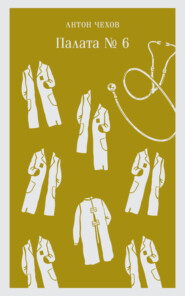По всем вопросам обращайтесь на: info@litportal.ru
(©) 2003-2024.
✖
The Duel and Other Stories
Настройки чтения
Размер шрифта
Высота строк
Поля
"I must write her a nice letter." he thought. The flag on the duhan hung limp, soaked by the rain, and the duhan itself with its wet roof seemed darker and lower than it had been before. Near the door was standing a cart; Kerbalay, with two mountaineers and a young Tatar woman in trousers – no doubt Kerbalay's wife or daughter – were bringing sacks of something out of the duhan, and putting them on maize straw in the cart.
Near the cart stood a pair of asses hanging their heads. When they had put in all the sacks, the mountaineers and the Tatar woman began covering them over with straw, while Kerbalay began hurriedly harnessing the asses.
"Smuggling, perhaps," thought the deacon.
Here was the fallen tree with the dried pine-needles, here was the blackened patch from the fire. He remembered the picnic and all its incidents, the fire, the singing of the mountaineers, his sweet dreams of becoming a bishop, and of the Church procession… The Black River had grown blacker and broader with the rain. The deacon walked cautiously over the narrow bridge, which by now was reached by the topmost crests of the dirty water, and went up through the little copse to the drying-shed.
"A splendid head," he thought, stretching himself on the straw, and thinking of Von Koren. "A fine head – God grant him health; only there is cruelty in him.."
Why did he hate Laevsky and Laevsky hate him? Why were they going to fight a duel? If from their childhood they had known poverty as the deacon had; if they had been brought up among ignorant, hard-hearted, grasping, coarse and ill-mannered people who grudged you a crust of bread, who spat on the floor and hiccoughed at dinner and at prayers; if they had not been spoilt from childhood by the pleasant surroundings and the select circle of friends they lived in – how they would have rushed at each other, how readily they would have overlooked each other's shortcomings and would have prized each other's strong points! Why, how few even outwardly decent people there were in the world! It was true that Laevsky was flighty, dissipated, queer, but he did not steal, did not spit loudly on the floor; he did not abuse his wife and say, "You'll eat till you burst, but you don't want to work;" he would not beat a child with reins, or give his servants stinking meat to eat – surely this was reason enough to be indulgent to him? Besides, he was the chief sufferer from his failings, like a sick man from his sores. Instead of being led by boredom and some sort of misunderstanding to look for degeneracy, extinction, heredity, and other such incomprehensible things in each other, would they not do better to stoop a little lower and turn their hatred and anger where whole streets resounded with moanings from coarse ignorance, greed, scolding, impurity, swearing, the shrieks of women..
The sound of a carriage interrupted the deacon's thoughts. He glanced out of the door and saw a carriage and in it three persons: Laevsky, Sheshkovsky, and the superintendent of the post-office.
"Stop!" said Sheshkovsky.
All three got out of the carriage and looked at one another.
"They are not here yet," said Sheshkovsky, shaking the mud off. "Well? Till the show begins, let us go and find a suitable spot; there's not room to turn round here."
They went further up the river and soon vanished from sight. The Tatar driver sat in the carriage with his head resting on his shoulder and fell asleep. After waiting ten minutes the deacon came out of the drying-shed, and taking off his black hat that he might not be noticed, he began threading his way among the bushes and strips of maize along the bank, crouching and looking about him. The grass and maize were wet, and big drops fell on his head from the trees and bushes. "Disgraceful!" he muttered, picking up his wet and muddy skirt. "Had I realised it, I would not have come."
Soon he heard voices and caught sight of them. Laevsky was walking rapidly to and fro in the small glade with bowed back and hands thrust in his sleeves; his seconds were standing at the water's edge, rolling cigarettes.
"Strange," thought the deacon, not recognising Laevsky's walk; "he looks like an old man.."
"How rude it is of them!" said the superintendent of the post-office, looking at his watch. "It may be learned manners to be late, but to my thinking it's hoggish."
Sheshkovsky, a stout man with a black beard, listened and said:
"They're coming!"
XIX
"It's the first time in my life I've seen it! How glorious!" said Von Koren, pointing to the glade and stretching out his hands to the east. "Look: green rays!"
In the east behind the mountains rose two green streaks of light, and it really was beautiful. The sun was rising.
"Good-morning!" the zoologist went on, nodding to Laevsky's seconds.
"I'm not late, am I?"
He was followed by his seconds, Boyko and Govorovsky, two very young officers of the same height, wearing white tunics, and Ustimovitch, the thin, unsociable doctor; in one hand he had a bag of some sort, and in the other hand, as usual, a cane which he held behind him. Laying the bag on the ground and greeting no one, he put the other hand, too, behind his back and began pacing up and down the glade.
Laevsky felt the exhaustion and awkwardness of a man who is soon perhaps to die, and is for that reason an object of general attention. He wanted to be killed as soon as possible or taken home. He saw the sunrise now for the first time in his life; the early morning, the green rays of light, the dampness, and the men in wet boots, seemed to him to have nothing to do with his life, to be superfluous and embarrassing. All this had no connection with the night he had been through, with his thoughts and his feeling of guilt, and so he would have gladly gone away without waiting for the duel.
Von Koren was noticeably excited and tried to conceal it, pretending that he was more interested in the green light than anything. The seconds were confused, and looked at one another as though wondering why they were here and what they were to do.
"I imagine, gentlemen, there is no need for us to go further," said
Sheshkovsky. "This place will do."
"Yes, of course," Von Koren agreed.
A silence followed. Ustimovitch, pacing to and fro, suddenly turned sharply to Laevsky and said in a low voice, breathing into his face:
"They have very likely not told you my terms yet. Each side is to pay me fifteen roubles, and in the case of the death of one party, the survivor is to pay thirty."
Laevsky was already acquainted with the man, but now for the first time he had a distinct view of his lustreless eyes, his stiff moustaches, and wasted, consumptive neck; he was a money-grubber, not a doctor; his breath had an unpleasant smell of beef.
"What people there are in the world!" thought Laevsky, and answered:
"Very good."
The doctor nodded and began pacing to and fro again, and it was evident he did not need the money at all, but simply asked for it from hatred. Every one felt it was time to begin, or to end what had been begun, but instead of beginning or ending, they stood about, moved to and fro and smoked. The young officers, who were present at a duel for the first time in their lives, and even now hardly believed in this civilian and, to their thinking, unnecessary duel, looked critically at their tunics and stroked their sleeves. Sheshkovsky went up to them and said softly: "Gentlemen, we must use every effort to prevent this duel; they ought to be reconciled."
He flushed crimson and added:
"Kirilin was at my rooms last night complaining that Laevsky had found him with Nadyezhda Fyodorovna, and all that sort of thing."
"Yes, we know that too," said Boyko.
"Well, you see, then.. Laevsky's hands are trembling and all that sort of thing.. he can scarcely hold a pistol now. To fight with him is as inhuman as to fight a man who is drunk or who has typhoid. If a reconciliation cannot be arranged, we ought to put off the duel, gentlemen, or something… It's such a sickening business, I can't bear to see it."
"Talk to Von Koren."
"I don't know the rules of duelling, damnation take them, and I don't want to either; perhaps he'll imagine Laevsky funks it and has sent me to him, but he can think what he likes – I'll speak to him."
Sheshkovsky hesitatingly walked up to Von Koren with a slight limp, as though his leg had gone to sleep; and as he went towards him, clearing his throat, his whole figure was a picture of indolence.
"There's something I must say to you, sir," he began, carefully scrutinising the flowers on the zoologist's shirt. "It's confidential. I don't know the rules of duelling, damnation take them, and I don't want to, and I look on the matter not as a second and that sort of thing, but as a man, and that's all about it."
"Yes. Well?"
"When seconds suggest reconciliation they are usually not listened to; it is looked upon as a formality. Amour propre and all that. But I humbly beg you to look carefully at Ivan Andreitch. He's not in a normal state, so to speak, to-day – not in his right mind, and a pitiable object. He has had a misfortune. I can't endure gossip.."
Sheshkovsky flushed crimson and looked round.
"But in view of the duel, I think it necessary to inform you, Laevsky found his madam last night at Muridov's with.. another gentleman."
"How disgusting!" muttered the zoologist; he turned pale, frowned, and spat loudly. "Tfoo!"
His lower lip quivered, he walked away from Sheshkovsky, unwilling to hear more, and as though he had accidentally tasted something bitter, spat loudly again, and for the first time that morning looked with hatred at Laevsky. His excitement and awkwardness passed off; he tossed his head and said aloud:
"Gentlemen, what are we waiting for, I should like to know? Why don't we begin?"
Sheshkovsky glanced at the officers and shrugged his shoulders.
"Gentlemen," he said aloud, addressing no one in particular.

















